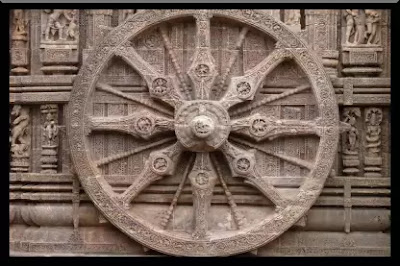Should India 'nationalise' Higher Education?
This is not the first time India is dealing with this question. The first time, just after the Independence, the answer was a resounding endorsement of cosmopolitan science, based on a modernist view of nation-building. Nehru wanted an India that looked forward, not backwards.
The second time, in the 80s, shorn of the optimism and adrift in the neoliberal world, the answer was low on nation-building aspiration and overtly focused on technological cold-start.
This road now leads us to where we are - a deja vu all over again! The country has been a major beneficiary of globalisation, but its blessings were mixed. A lot of people has been left behind, communities have been replaced by a dog-eats-dog mentality, education has decended to a 'country of first boys' absurdity and India's rich diversity of languages and cultures has been decimated by the onslaught of Hinglish and K-Pop! The mood now is to make Indians, all over again.
Overcoming the dead lord
This uneasiness with globalisation, however, is being framed within our unresolved relationship with our past. For most of our ills, we blame the English-style Higher Ed, which opened the doors of globalisation but also split the society in the middle, between the cosmopolitans and the desi-s.
There is derogatory term for the Cosmopolitan, Nehru-types, who consume IMFL ('Indian made foreign liquor') and debate about the ideas of India: Macaulay's children! [There are other names, Khan market or Lutyen elite, a reference to New Delhi, but the one invoking Macaulay is the most appropriate in present context.]
This is a reference to the dead lord who was high on rhetoric but not on practical impact on policy. In the version of history now popular, Macaulay upended thousands of Indian learning with one brilliant speech, allowing the English to repeat what the Tudors did to Ireland, stamping out the Indian knowledge! Thereafter, the anglicized India lost its connections with itself, governed by rootless cosmopolitans who neither understood the 'common man' nor what it means to be an Indian. India's NEP now wants to correct this historical aberration, yanking away from the recent past to return to what India is, its great civilisation and learning, and to that fundamental commonality that makes an Indian.
However, even in the NEP, there is an implicit tension between the need of a global competitiveness, which underpins modern Indian economy, and traditional, hindu, imagination of India, which shapes contemporary Indian politics. It simultaneously talks about competitiveness to maintain the primacy in global services (due, in no small measure, to English education) and the need to restore the Indian kernel in higher education. It gives a positive nod to internationalisation by recommending that the top 100 universities in the world should be allowed to set shop in India, while hoping that Indian institutions offering an Indian education would help spread India's 'soft power'. The legislative activism for the latter and the deafening silence about the former indicate where the priorities lie: India wants to create a new model of Indian education away from the presumed legacy of Macaulay!
India, that is Bharat
However, Macaulay's legacy may be more pervasive than just in the English education. In fact, at the core of the 'nationalisation' agenda, there is a concept of India, a lost 'hindu-rastra' that existed in pristine state in antiquity and was despolit by the Islamic invaders. But this idea was purely British, driven by the agenda to disconnect India's history from its Asian past and incoporating it into an imagined empire!
My point is that India was never a hermit kingdom, protected from the world by mighty mountains and endless oceans. It was rather the most globalised of the lands, connecting the perpetual motions of the silk road traffic to the bazaars of the Indian ocean world. This was where most of the humanity lived and worked, when Europe was a mere sideshow. Its cultures, languages, dresses, foods are so diverse not because each originated distinct and remained distinct, but because they emerged from the endless churn of the human connections. Geography shaped India's destiny: There was never a conflict between being Indian and being cosomopolitan. Until the English imported some ideas and gave us some badly drawn borders, that is!
Therefore, Indians reconnecting with India does not have to mean renounciation of English in favour of the imposition of a new Indian language: Please, let's not play Macaulay's game anymore! Indeed, we may need to think what liberal humanities may mean for us: Perhaps such a curriculum would have less of the American wisdom and more Indian, Islamic and Chinese texts, but it would never be narrow, never be not global, never be a rejection of the world. An Indian education must be one in connections, of being one with humanity, at ease with its history. India, that is Bharat, is the land where all the things in the world are said to exist. We must not embrace what our colonialists made us believe about ourselves.


Comments